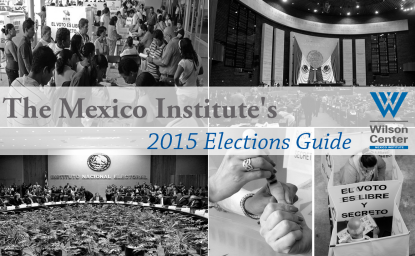The Anticipated Results
"As we draw closer to June 7th, it appears that the upcoming election anticipates some likely unexpected results," writes Veronica Ortiz in this Expert Take.
"As we draw closer to June 7th, it appears that the upcoming election anticipates some likely unexpected results," writes Veronica Ortiz in this Expert Take.

As we draw closer to June 7th, it appears that the upcoming election anticipates some likely unexpected results.
We´re actually seeing two kinds of elections, following their own electoral dynamic. At the State level, the local economic and political conditions, the popularity of the outgoing governor as well as the personality of the candidates campaigning for office weigh in the voters´ decision process. Hence the volatility of the possible results, to close to call by now at least in 7 out of the 9 States in dispute.
The federal election to renew the House is a whole different story, in which the parties brand names weigh more than individual trajectories. And contrary to the general belief, public polls are consistently showing a distribution of seats in the lower Chamber similar to the present one, except for the fragmentation of the left caused by Morena´s irruption in the political scene. Some exercises even foresee more seats for the PRI and its allies in Congress, the PVEM and PANAL (they currently hold 251 out of 500 seats).
Should this be the case, the PRI vote could be interpreted in two ways: firstly fueled by some signals of slow economic recovery (reported lower unemployment and better retail figures) and expectation around the benefits of the structural reforms (i.e. savings in electricity bills). Secondly, an inertial vote assuming a growing disenchantment with politicians and political parties, but also with the lack of promising alternatives.
On top of those arguments, a divided opposition always proves helpful. The right wing PAN is in turmoil, with national leader Madero fighting former President Calderón over control of the party. The leftist parties on the other hand are paving the way for the PRI thanks in good part to López Obrador´s rupture with the PRD.
Interestingly, the likely success of the PRI would reverse the fate of the last three midterm elections where the governing party (be it PRI or PAN) lost the majority in Congress. However, cautiousness is highly recommended. The PRI and its allies would be very mistaken to take an electoral triumph for granted. Specially when so many challenges lie ahead.
They will have to manage expectations for starters. The implementation of the structural reforms is a lengthy, grueling process which will require a strong political will and an even stronger convening power, similar to the one behind the Pacto por México, to stay the course.
Most importantly, it would be a huge mistake to minimize the popular rejection towards systemic corruption. The enactment of the Anticorruption bill last week was an undisputed achievement of the organized civil society that will have to be matched with a genuine commitment of the authorities to comply with and enforce the law. Nothing shorter than that will restore their tarnished credibility.
It might prove worthy recalling that the last time the PRI won a midterm election was 1991 with then President Carlos Salinas. Needless to say, despite that electoral victory things didn´t work out well in the end.
Veronica Ortiz Ortega is a lawyer and political analyst. She is also a journalist for the newspaper El Economista and TV presenter for Canal del Congreso and AprendeTV in Mexico.


The Mexico Institute seeks to improve understanding, communication, and cooperation between Mexico and the United States by promoting original research, encouraging public discussion, and proposing policy options for enhancing the bilateral relationship. A binational Advisory Board, chaired by Luis Téllez and Earl Anthony Wayne, oversees the work of the Mexico Institute. Read more



